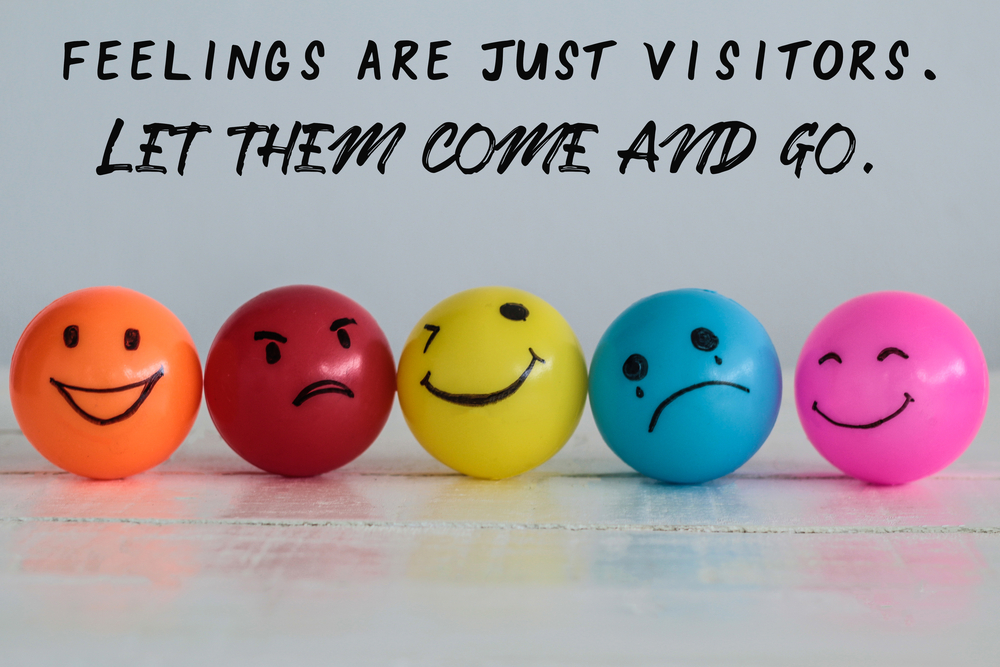From Chaos to Calm: Navigating Your Feelings Masterfully

Emotion regulation is a essential ability that can greatly influence all facets of our daily lives, from our private relationships to our career pursuits. In a environment laden with stressful situations and challenges, the ability to control our emotions can be the difference between positive engagements and chaotic reactions. Grasping how to navigate the challenges of our emotions not only promotes mental wellness but also improves our ability to make decisions and interpersonal interactions.

As we explore the science behind emotional regulation and analyze validated strategies for enhancing emotional control, it is clear that perfecting this skill is crucial to attaining both personal and career success. From noticing emotional triggers to utilizing mindful practices and creating daily habits, there are many tools we can use. With the appropriate methods, we can convert moments of disarray into opportunities for peace, enabling us to react thoughtfully under pressure and maintain our composure during difficult interactions. Come with us as we uncover practical activities and insights to support you manage of your emotional state and foster a more tranquil, resilient life.
Effective Methods for Feeling Regulation
One successful strategy for enhancing emotional control is practicing mindful practices. With engaging in mindfulness, individuals can foster a greater consciousness of their cognition and feelings, allowing them to monitor their affective responses without instant judgment or reaction. This awareness creates a moment to think about how to respond rather than acting impulsively. Simple techniques such as mindful breathing, body awareness, or such as mindfulness meditation can help center individuals during moments of intense emotion, promoting a feeling of calm amidst the chaos.
A important method is recognizing affective triggers. Knowing what specific circumstances or behaviors trigger strong feelings can enable individuals to get ready for and manage these triggers more efficiently. Keeping a diary to record emotional responses and reviewing past experiences can assistance recognize patterns. Once identified, people can employ coping strategies tailored to these cues, such as stepping away from a stressful situation or using relaxation techniques, leading to better affective regulation.
Enhancing self-understanding is crucial in emotional regulation. Participating in regular self-examination can improve understanding into one's emotional landscape, helping to differentiate between emotions and reactions. With recognizing the difference between suppressing emotions and dealing with them, individuals can understand to express their feelings constructively. Approaches such as writing, talking to a close companion or seeking qualified assistance can strengthen this self-awareness, making it more manageable to manage challenging situations with composure and understanding.
This is Science of Psychological Regulation
Psychological regulation is a intricate process that permits individuals to influence their affective experiences and reactions. This process includes both conscious and unconscious strategies to control emotions, aiming to create a balance between feeling feelings fully and preventing them from becoming unmanageable. Research in neuroscience indicates that the brain areas engaged in psychological regulation comprise the prefrontal cortex, which is key to decision-making and impulse control, and the amygdala, which is vital for emotional responses. The interaction between these regions helps individuals judge situations and respond appropriately without falling to impulsive reactions.
Research have shown that effective psychological regulation can lead to better mental health conditions. Individuals who practice psychological control tend to exhibit lower levels of anxiety, depression, and stress. This is because regulation techniques can modulate the intensity and duration of affective responses, allowing individuals to cope with obstacles more effectively. Furthermore, the ability to regulate emotions is linked to higher resilience, as people learn to navigate adversity without letting their feelings dictate their actions.
Incorporating strategies like mindfulness, journaling, and self-recognition can enhance psychological regulation. These practices permit individuals to recognize their emotional triggers and learn better responses. Research suggests that regular engagement in these techniques can lead in lasting changes in brain function and emotional processing, encouraging a greater sense of calm and enhanced overall well-being.
Establishing Resilience By Affective Control
Emotional mastery holds a vital role in developing strength. If individuals learn to regulate their affects effectively, they grow better suited to face obstacles and failures. This resilience allows them to recover with greater speed from adverse situations, rather than being overwhelmed or beaten. Cultivating psychological control helps form a shield against stressors, allowing individuals to approach challenges with a analytical mindset instead feeling frozen by affective distress.
Moreover, achieving affects encourages a constructive view, which is essential for resilience. This involves recognizing and reframing pessimistic thoughts, permitting individuals to perceive difficulties as possibilities for development. A strong human knows that emotions, while strong, can be controlled and leveraged positively. This mindset not just improve their skill to manage with challenges but also strengthens them to maneuver life's uncertain character with assurance and poise.
Finally, the cultivation of emotional mastery enhances relationships, which is a core element of resilience. By regulating Click here to find out more and communicating efficiently during disputes, persons can maintain positive connections with one another. Nurturing bonds provide a safety net during challenging moments and improve overall psychological well-being. By focusing in psychological control, persons not only strengthen their individual tenacity but also positively impact constructively to their communities and relationships.
